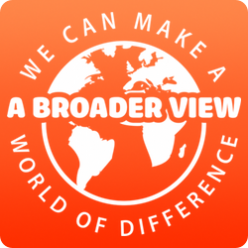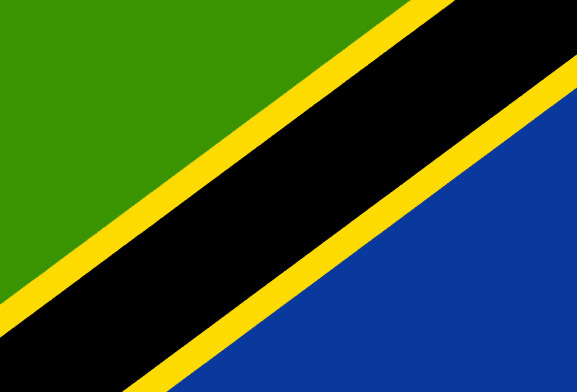Volunteer Tanzania Personally, I found this program to be very worthwhile as this trip turned out to be one the best experiences of my life. It was very eye-opening and gave me a boost of motivation to continue my studies and inspiration for my future career. As a fourth-year medical student, I was able to gain a lot of hands-on experience from this program and put a lot of things I had learned in my medical studies into practice.
Volunteer Tanzania
1- How were the local ABV Coordinator and the support provided in-country? *
Volunteer Tanzania, The local ABV Coordinator was very helpful in assisting us to adjust to life in Tanzania. He was able to answer any questions that we had and provided us with directions and support when requested. We were given a tour of Arusha on the first day for us to get familiar with the city and to purchase anything we needed. We were also shown how to get to the hospital using the local public transport. We felt that we were well supported throughout the trip and that our ABV coordinator was reachable if we had any issues.
2- What was the most surprising thing you experienced? *
What I found most surprising was the resilience of the local people, especially patients and staff at the hospital. Everyone had a can-do attitude despite having very limited resources and facilities. Nobody was willing to give up on patients easily and they worked really hard to achieve what is best for the patients under the circumstances. I was also surprised by the sense of community among the people even in a town such as Arusha. I felt that people had a common bond and was supporting each other the best they could with what they had. Their attitude towards life and how they were content with what they had was truly inspirational.
3- What was most difficult to experience? *
What we found most difficult to deal with was the lack of resources and facilities in the hospital and some aspects of the workplace culture. Seeing patients becoming sick from easily preventable conditions and patients not being able to afford medications or get access to certain facilities was very difficult to experience. I also found that some aspects of workplace culture such as mistreatment of vulnerable patients in certain situations and the lack of informed consent from patients for medical procedures and treatments sometimes distressing. It was also difficult seeing certain procedures leading to poor outcomes for the patients due to the lack of resources and facilities compared with how they would be dealt with in my own country.
4- Any tips for future volunteers… (Clothing, travel, personal items, donations) *
In terms of tips for future volunteers, I would recommend taking a lot of medical equipment for your own use if you are working at a hospital. It depends on your experience level and what you are wanting to get out of the experience. For us, because we took a lot of sterile gloves, non-sterile gloves, sterile gowns, masks, etc we were able to assist in a lot of procedures including delivering babies, inserting cannulas, drawing blood, inserting urinary catheters and even assisting in Caesarean sections. If we didn’t bring this equipment with us, we would not have been able to gain as much hands-on experience as we did. I would also recommend taking a lot of hand sanitizer with you as the hospital generally do not have hand sanitizer for us to use. Be sure to take some form of malaria prophylaxis and insect repellent. In terms of clothing, I would recommend taking scrubs to wear to the hospital and a lab coat to wear on top. Also, make sure to take your CV and some documentation to indicate that you are a student at a particular university/college. We did not take this with us and we had to go into a lot of trouble to get this documentation from home while we were there.
Volunteering Tanzania
5- Other things volunteers should know: *
Be prepared to experience the unexpected. Don’t expect for staff at the hospital to include you in anything or offer you to join in on anything. You have to take the initiative and ask if you want to do a certain thing. Generally, all staff are very friendly and will let you do anything if you ask them first. I always found it best to ask them to show you first how to do a certain thing, especially if it is something that you have not done before. Be careful with needles and sharp objects, a lot of the hospital staff are very casual about the use of sharps and make sure you dispose of them properly. Always make sure you have personal protective equipment when handling bodily fluids, even if other staff doesn’t seem to use them. Use hand sanitizer as much as possible. Don’t attempt anything that you feel is unsafe or seem very risky.
6- Personal Paragraph (ABV Program Testimonial): *
Personally, I found this program to be very worthwhile as this trip turned out to be one the best experiences of my life. It was very eye-opening and gave me a boost of motivation to continue my studies and inspiration for my future career. As a fourth-year medical student, I was able to gain a lot of hands-on experience from this program and put a lot of things I had learned in my medical studies into practice. On a personal level, this trip made me re-evaluate my values and goals in life and I feel that I now have a much better understanding of who I am as a person and my role in society. This trip inspired me to continue to volunteer in the future and to understand to provide assistance in a way that is of most benefit to the people on the ground. I would certainly recommend ABV to anyone who is planning on volunteering as I believe that they provided me with the best support to get the most out of this experience.
7- How would you describe your accommodation, meals, security (e: host family, on-site, shared) *
The accommodation at the Hostel was better than I expected. We were provided with a bedroom with a bunk bed and attached bathroom with a flushable toilet. The beds were comfortable and there were mosquito nets for us to use. There were a shared living space and an outdoor seating space including a pool. Apart from a few bugs in our room (don’t leave trash or food in the room), the whole house was clean and inviting. The hostel had high walls and two locked gates, to which we were given a key. We felt very secure inside and had no issues leaving our belonging in the hostel throughout the day when we were at the hospital. The food was also much better than expected. We had a lovely lady who came and cooked our meals. For breakfast, we usually had boiled eggs or an omelet with toast most days. For dinner, we had some form of casserole with meat and vegetable or beans with either rice or chapati. The food was tasty and clean and we had no problems with it.
8- What was your favorite memory of this trip? *
I have many fond memories of this trip. One of the highlights would be when I assisted deliver my first baby. I was quite stressful at the time but reflecting back it was one of the most treasured memories that I have from the trip. I still remember the smile and the sign of relief on the mother’s face when she saw her child for the first time. Both the baby and the mother had no complications from the delivery and was able to go home the next day. This was such a pleasant experience and I will never forget it. Other fond memories including going on safari and seeing lions, cheetahs, and giraffes in wild for the first time and seeing mount Kilimanjaro up close.
9- How was the ABV USA support prior traveling? *
ABV USA support was very good prior to travel. They provided us with adequate information on what to take and what we should be prepared for. They provided specific information regarding what to do in the event of an emergency and who we should contact. They were easily contactable through email and quickly responded to any questions we had throughout the planning stage.
10– Are you willing to speak to other potential ABV volunteers? *
Yes, I am happy to speak with other potential ABV that want to volunteer Tanzania and answer any questions they might have regarding the program.

